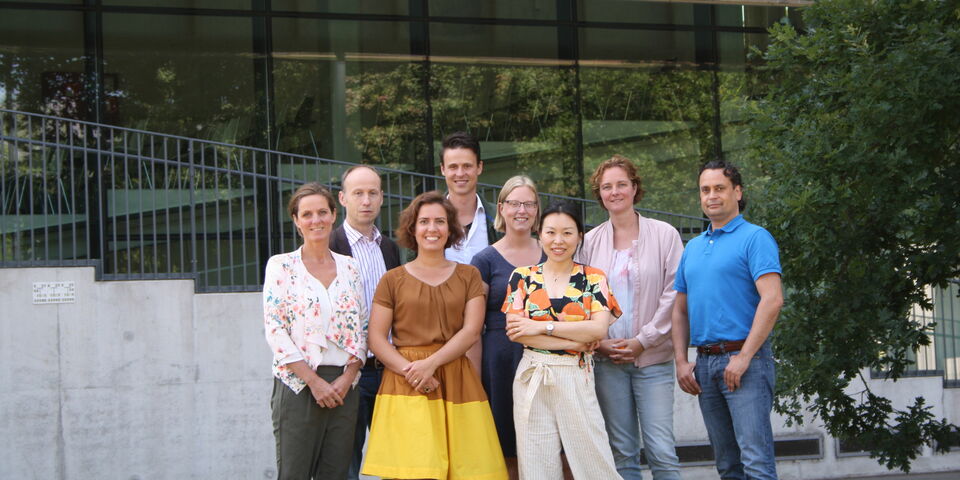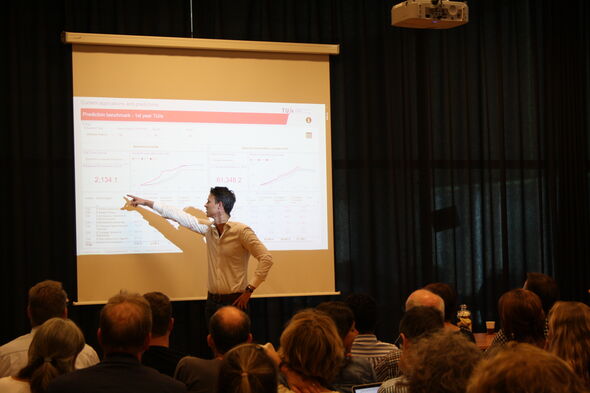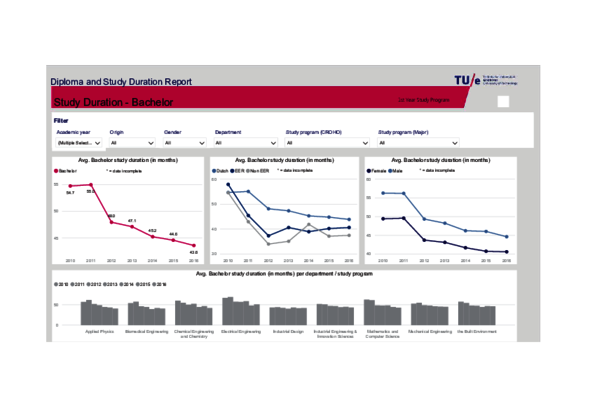Smarter handling of data should reduce work pressure
The new portal of the Business Intelligence Cluster will serve from mid-July as the virtual counter where every TU/e employee can pick up reports and data. The aim is to reduce the work involved in searching for data and to ensure better prognoses. If in time data files from various domains can be linked up, the possibilities will further increase.
Not having all your time taken up with collecting the necessary data but being able to get straight down to work with the content, that is an important aim of the new portal belonging to the Business Intelligence Cluster. The reports that everyone can independently download will reduce the work pressure on TU/e employees, that is the firm expectation.
“In the current situation we have nine departments asking Education and Student Affairs (ESA) for roughly the same information and every time manual work is involved drawing up a list of reports to answer their questions," says Merle Rodenburg, the project's quartermaster. "Then, yet again, someone in a department sets about collecting these reports, merging them in Excel, analyzing them, possibly returning to the ESA to pick up additional information, etc., etc.”
Rodenburg feels it is a pity this eats up so much time, time that ideally could be spent on other tasks. “It becomes much more interesting if the data are there ready for our employees to use, and they can get on immediately with their analysis, interpretation and decisions. Instead of having to go through the whole process of collecting data. What's more, all the departments will be able to work from the same basic set and definitions, which will enable them to coordinate more easily,” she adds.
Links
An important second aim of the new TU/e-wide BI environment is that it will become possible to produce trans-domain reports for the first time in a single environment. Rodenburg gives an example: “We could link the student prognoses to the new, to-be-developed prognoses relating to our workforce, and establish a relationship between them, with a view to addressing our accommodation issues and the related financial parameters. Right now, complex analytical questions of this nature are still very difficult, time-consuming and labor-intensive to answer, because the information has to come from different source systems, which in turn work with different definitions and reference dates.”
Continue reading under the photo.
The first domain that the BI Cluster took in hand was education. A necessary choice because the old BI environment had been unavailable since the student information system Osiris went live and consequently ESA was producing all its reports manually. Last June a start was also made on staff management, and as of 2019 the domains of finance and other operations, and research will follow. Rodenburg is looking forward to the moment when the domains can be linked: “That's when we can start to produce really interesting reports, which we can offer to large groups of users.”
Prognoses
The data support and long- and short-term decisions. The Executive Board wants reliable data so that it can base decisions relating to, say, decentralized selection on it. Then again, the number of students expected in 2025 is important to a member of the ICT staff because the license numbers have to be taken into account in the budget. A program director needs to know how many new first-years he or she can expect, and a managing director may seek trends relating to secondary funding and contract research funding.
It is also possible to look back and learn from past situations. Now and then, ministerial amendments to legislation can be clearly traced in the charts. In 2012 the declining line showing length of time spent studying took a nose dive. Information analyst and BI Cluster member Diana Braspenning explains this 'cliff' as being due to the introduction of the 'hard cut-off' (students may only begin a Master's once they have fully completed their Bachelor's) and the threat of the prolonged-study fine.




Discussion